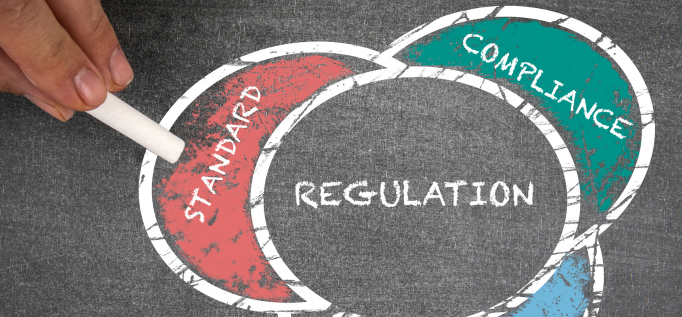If you’re a landlord in London, staying on top of safety standards isn’t optional it’s a must. The rules aren’t just about avoiding fines or legal headaches; they’re about keeping your tenants safe and protecting your reputation. But here’s the thing: navigating all the regulations can feel overwhelming.
This guide breaks it all down for you. From gas and electrical safety to energy performance and fire compliance, we’ll show you exactly what you need to do to stay compliant and make your property a place tenants love to call home.
Why Landlord Safety Standards Matter
Being a landlord in London means more than just collecting rent—it comes with responsibilities. Safety standards are there for a reason: to protect tenants and keep properties free from risks. Ignoring these rules isn’t just risky for tenants; it’s risky for you too.
Non-compliance can lead to fines, court cases, or even losing the right to rent your property. But the consequences go beyond money. Tenants are more likely to leave if they feel unsafe, and your reputation as a landlord can take a serious hit. Meeting safety standards isn’t just about ticking boxes—it’s about doing the right thing.
Landlord Safety Standards in London
London landlords must follow specific safety rules to rent out their properties legally. These standards are designed to protect tenants and reduce risks. Here’s what you need to know about the key safety certificates:
1. Gas Safety Standards
Every rental property must have a valid Gas Safety Certificate. A Gas Safe-registered engineer must inspect all gas appliances and systems every year. Once the inspection is complete, you must provide a copy of the certificate to your tenants. Skipping this puts your tenants at risk of gas leaks and carbon monoxide poisoning—and you at risk of heavy fines.
2. Electrical Safety Standards
Electrical systems in your property need a check-up every five years. This is done through an Electrical Installation Condition Report (EICR). Faulty wiring and unsafe installations can cause fires or electric shocks, making this certificate non-negotiable. If you don’t have a valid EICR, you could face serious legal consequences.
3. Energy Performance Standards
An Energy Performance Certificate (EPC) measures your property’s energy efficiency. It’s valid for ten years and must be provided to tenants before they move in. Properties need at least an E rating to be rented legally. A better energy rating can save tenants money on bills and make your property more attractive.
4. Fire Safety Standards
Fire safety rules are clear: you must install smoke alarms on every floor and carbon monoxide detectors where necessary. You’re also responsible for maintaining these devices. In multi-tenant properties, extra measures like fire extinguishers and clear escape routes may apply. Skipping fire safety steps can lead to unlimited fines—or worse, criminal charges if tenants are harmed.
5. Legionella Risk Assessment
Although not a legal requirement, a Legionella risk assessment is highly recommended. This assessment checks the water system for Legionella bacteria, which can cause serious health issues. Documenting this step protects both you and your tenants.
Steps to Stay Compliant
Keeping up with landlord safety standards doesn’t have to be stressful. With a few simple steps, you can make compliance part of your routine and avoid unexpected fines.
1. Schedule Inspections on Time
Each safety certificate has a specific renewal timeline. Gas safety inspections are annual, EICRs are required every five years, and EPCs every ten years. Setting reminders or using a calendar app can help you stay on top of these dates. A little planning now saves you from last-minute hassles and keeps your property compliant year-round.
2. Hire Certified Professionals
Only certified professionals can issue these safety certificates. For gas inspections, look for Gas Safe-registered engineers. For electrical inspections, choose a certified electrician. Using qualified professionals isn’t just safer it’s legally required.
3. Keep Your Records Organized
Once you have the certificates, store them in a secure, accessible place. Sharing copies with your tenants not only builds trust but is also required for some certificates, like the Gas Safety Certificate. Organised records are also a lifesaver if you’re ever audited or need proof of compliance.
4. Stay Updated on Law Changes
Landlord regulations in the UK can change, so it’s essential to stay informed. Joining a landlord association or subscribing to updates can help you keep up with new requirements. Staying proactive saves you from future headaches and keeps your property on the right side of the law.
Common Mistakes Landlords Should Avoid
Many landlords make mistakes that can lead to fines or legal trouble. Missing inspection deadlines for gas or electrical safety is a common issue, as is hiring unqualified professionals to carry out these checks. Neglecting fire safety measures, like installing and testing smoke alarms or carbon monoxide detectors, can result in severe penalties.
Overlooking the importance of an Energy Performance Certificate (EPC) or failing to update it can also lead to legal complications, especially if your property doesn’t meet the required minimum rating. Additionally, skipping a Legionella risk assessment, while not legally mandatory, could expose you to liability if a tenant falls ill. Staying proactive and organised helps avoid these pitfalls.
Conclusion
Landlord safety standards in London are non-negotiable, and compliance with these regulations is essential for the protection of tenants and the longevity of the rental property business. From gas safety checks to fire and electrical safety standards, it is imperative that landlords understand and adhere to the legal requirements to avoid costly penalties and ensure tenant safety.
Regularly scheduled inspections, proper certification, and taking a proactive approach to safety will help landlords in London stay compliant and maintain a trustworthy reputation.


